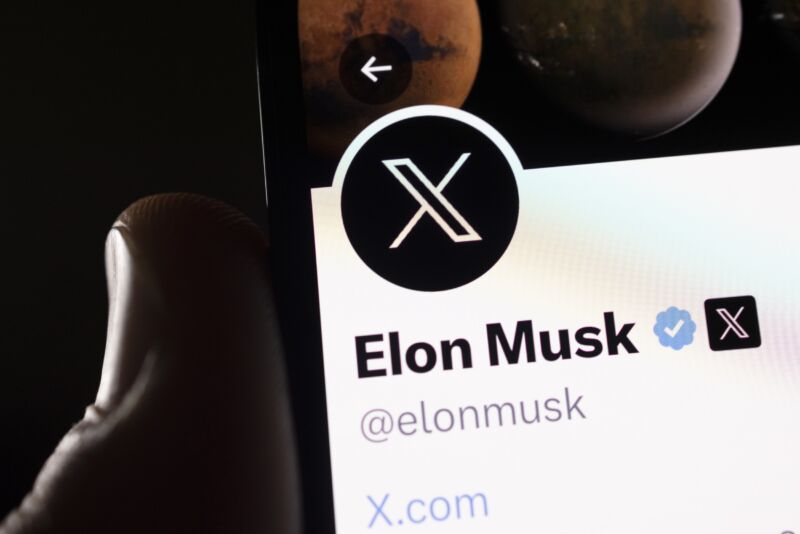
In the latest controversial change at Elon Musk’s social network, the service formerly named Twitter reportedly added a five-second delay when users load links to certain news sites and rival social networks. The New York Times and Reuters were affected by the delay with the t.co link-shortening service used by X, according to several news reports published yesterday.
X eliminated the delay in links to news sites yesterday afternoon, according to Reuters and The Washington Post. “When contacted for comment, X confirmed the delay was removed but did not elaborate,” Reuters wrote.
Links from X to the NYT and Reuters loaded almost instantly for us today. But we still found delays of three to five seconds in links to Substack, Bluesky, Facebook, Instagram, and Threads today in our tests.
Musk has famously called himself a “free speech absolutist,” said he intended to protect free speech on Twitter, and that he is “against censorship that goes far beyond the law.”
We contacted X today and will update this article if we get a response. While the press@twitter.com media contact email address used to auto-reply to all messages with a poop emoji, the auto-reply message now says, “We’ll get back to you soon.”
Musk criticized NYT
A person posting on Hacker News said the t.co delay started affecting the NYT on August 4. “Go to Twitter and click on a link going to any url on ‘NYTimes.com’ or ‘threads.net’ and you’ll see about a ~5 second delay before t.co forwards you to the right address. Twitter won’t ban domains they don’t like but will waste your time if you visit them,” the user wrote.
August 4 is the same day that Musk called the NYT a “racial genocide apologist.” That was in reply to a video of Julius Malema, leader of the South African Economic Freedom Fighters party, saying, “We’ve not called for the killing of white people, at least for now. I can’t guarantee the future.”
That Malema statement was apparently made in an interview in 2018. Two days before Musk’s “racial genocide apologist” tweet, the NYT wrote an article describing a new controversy over a rally at which Malema chanted “kill the Boer,” in reference to white farmers.
The NYT’s August 2 article quoted a Musk tweet that said, “They are openly pushing for genocide of white people in South Africa.” The article also quoted people who said the chant “should not be taken as a literal call to violence.”
Musk also called the NYT “propaganda” in April and revoked the organization’s verified badge.
NYT says reason for delay “unclear”
While link delays are an annoyance rather than outright blocking, Musk’s Twitter has been more aggressive about impeding access to rival social networks in the past. In December, Twitter banned links to Mastodon, Facebook, and other social networks, and said it would “remove accounts created solely for the purpose of promoting other social platforms.” Twitter reversed the policy after criticism.
Also in December, Musk suspended the Twitter accounts of reporters from The New York Times, Washington Post, and CNN, claiming they doxxed him by posting links to the ElonJet account on other social networks. Musk had previously suspended the Twitter account of ElonJet, which tracks the movements of his private jet.
In April, Twitter disabled retweets and replies to tweets containing links to the Substack domain. Musk also temporarily labeled NPR’s Twitter account as “state-affiliated” even though NPR gets less than 1 percent of its annual funding directly from the US government and retains editorial independence.
A New York Times spokesperson told news outlets yesterday that it hadn’t received an explanation from X about the link-loading delay. “While we don’t know the rationale behind the application of this time delay, we would be concerned by targeted pressure applied to any news organization for unclear reasons,” the NYT said.
Substack told The Washington Post that it “urged X to reverse the decision instituting a delay on Substack links.”
“Substack was created in direct response to this kind of behavior by social media companies,” Substack’s founders said in a statement that criticized “unreliable platforms that have proven they are willing to make changes that are hostile to the people who use them.”
https://arstechnica.com/?p=1961279

